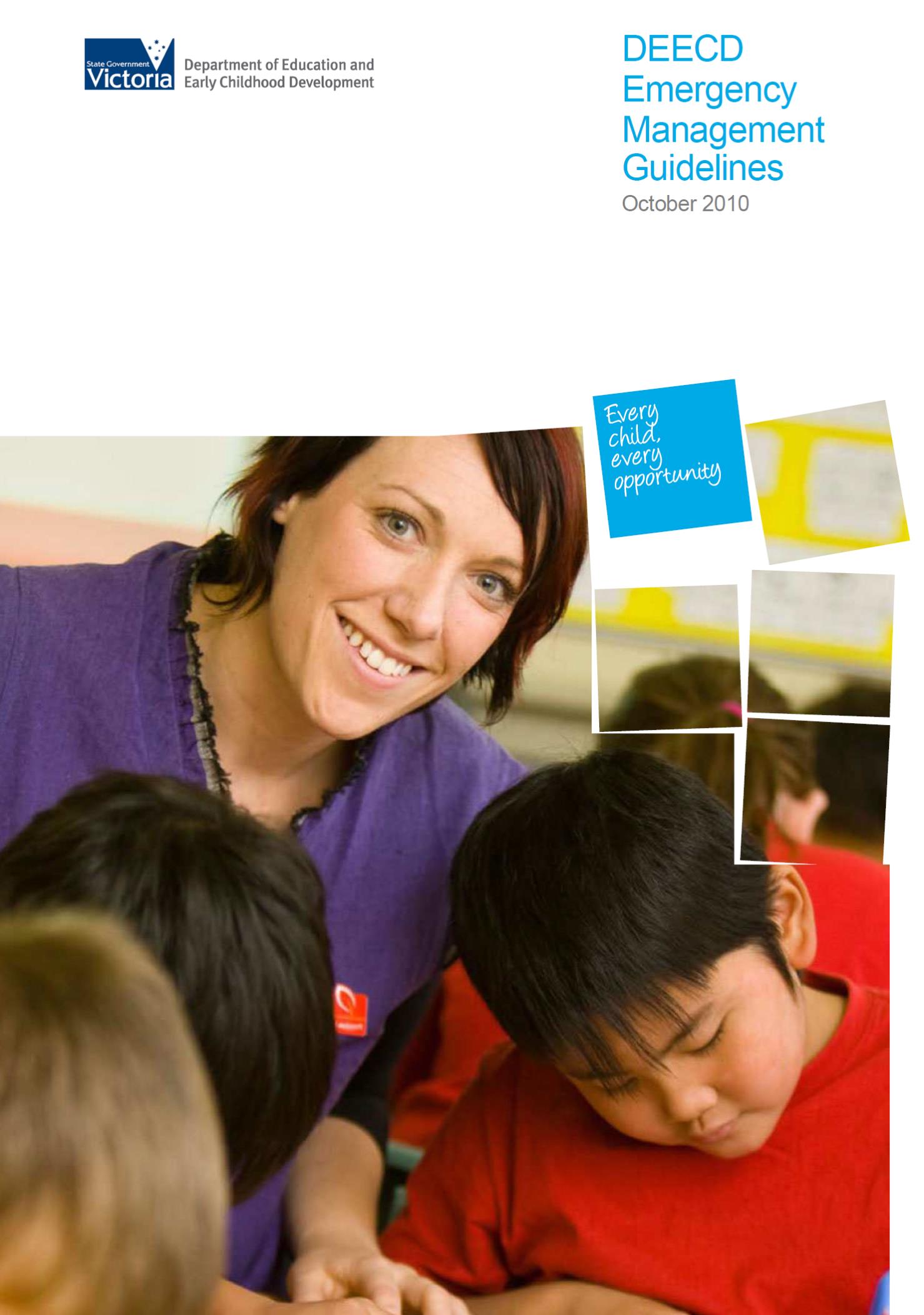Member Area Resources - Risk Management
Victorian DEECD Emergency Management Guidelines
DEECD Emergency Management Guidelines (Victorian)
 October 2010
October 2010
The Department of Education and Early Childhood Development (DEECD) aims to ensure a safe and secure environment for all children, young people, staff and volunteers who work or participate in schools and Licensed Children’s Services (LCS) facilities.
Every facility in Victoria is required to have an Emergency Management Plan (EMP) as part of its normal ‘better practice’ operations.
The purpose of the EMP is to:
- Reduce the likelihood of emergencies and critical incidents;
- Minimise the impact of these events on children and young people, staff, volunteers and visitors;
- Facilitate the return of the workplace to normal operations as soon as possible; and
- Provide staff with the tools that, if faced with an emergency situation, will enable them to cope.
Effective planning and management of emergencies helps minimise trauma and distress to those within the facilities and allows teaching, learning and care services to be maintained or resumed as a priority.
DEECD Emergency Management Guidelines (Victorian)
DEECD Emergency Management Guidelines – Template
October 2010
This document contains a template that includes the essential components of a good Emergency Management Plan, together with a number of appendices that facilities may find useful to include when preparing their plan.
Your Emergency Management Plan will serve as a practical action plan for your facility to follow in the event of an emergency situation.
TEMPLATE: DEECD Emergency Management Plan
Emergency Management (Bushfires)- Off-site Activities
Procedure 1 | Issued 16/12/09
Revised 10/2/10
This procedure is designed primarily for government schools, principals and school staff involved in or responsible for emergency management and off-site activities.
Bushfire preparedness is not just a concern of rural and regional schools. Metropolitan schools will also be affected because their students or staff may attend activities or excursions in bushfire prone areas, or travel through bushfire prone areas for these activities.
